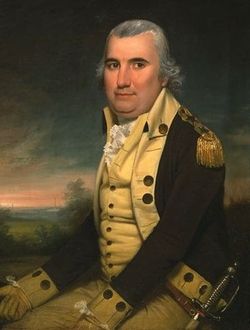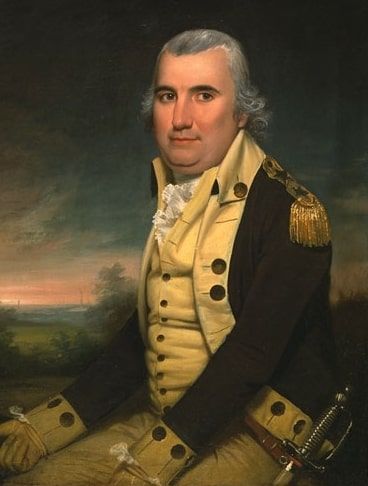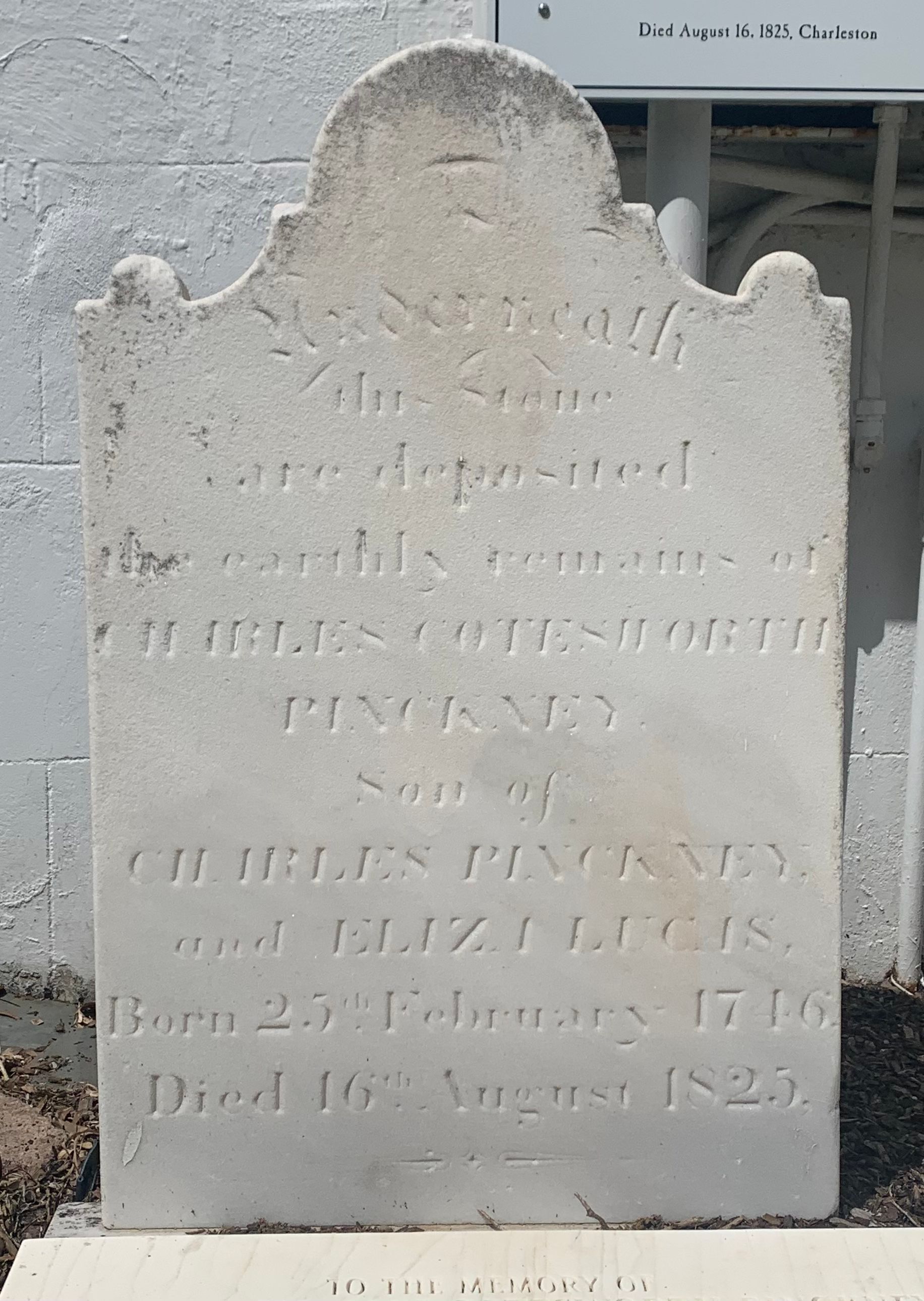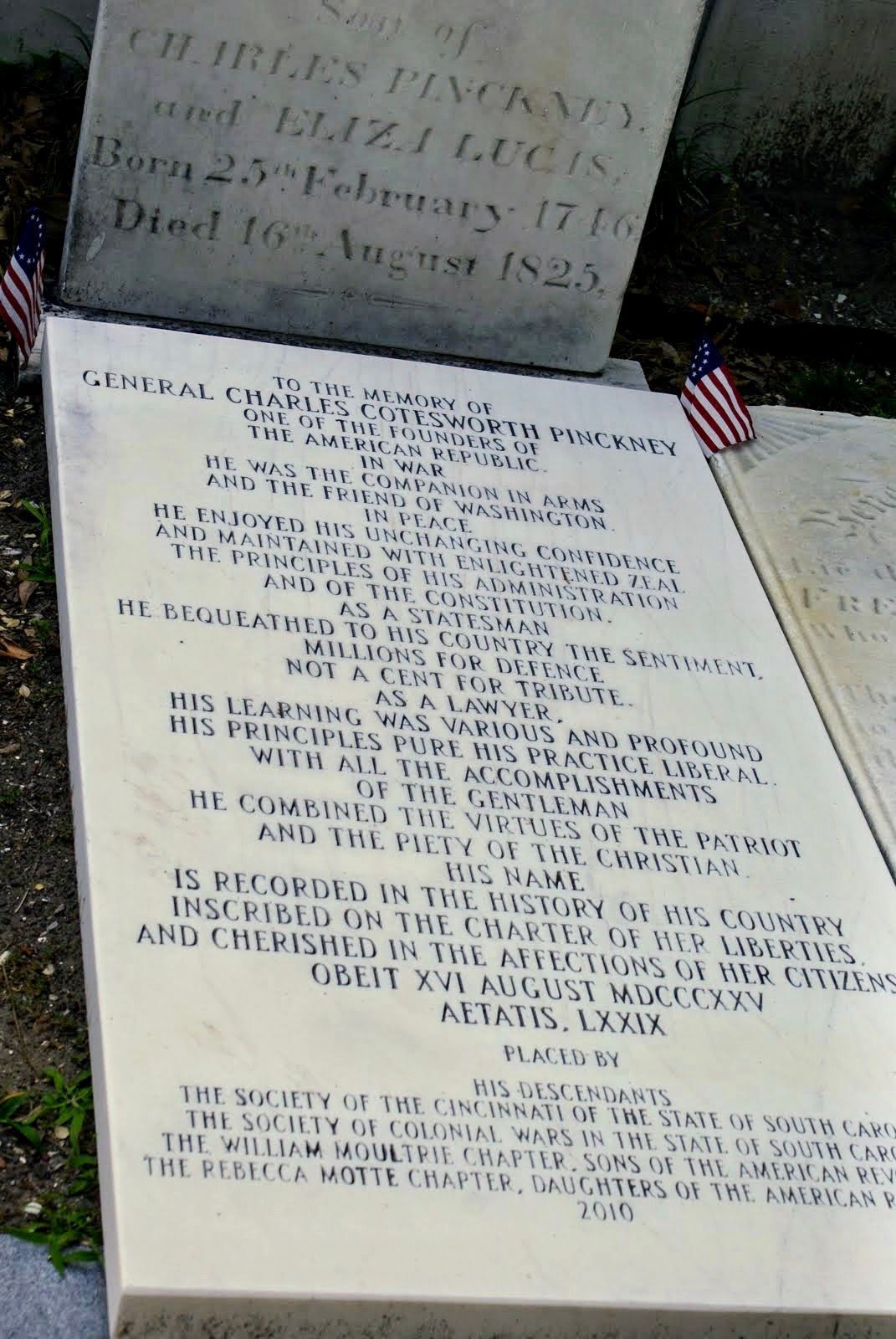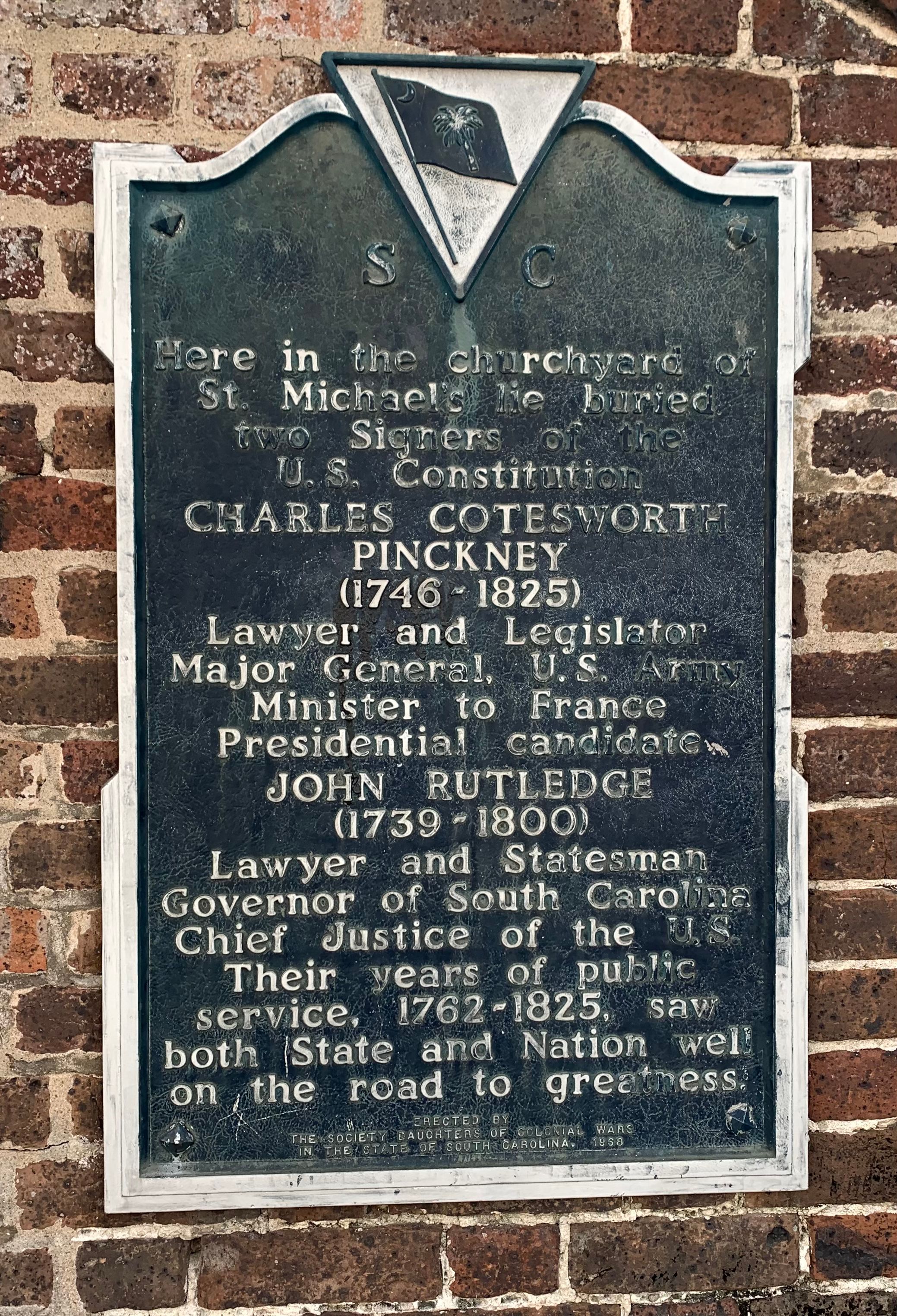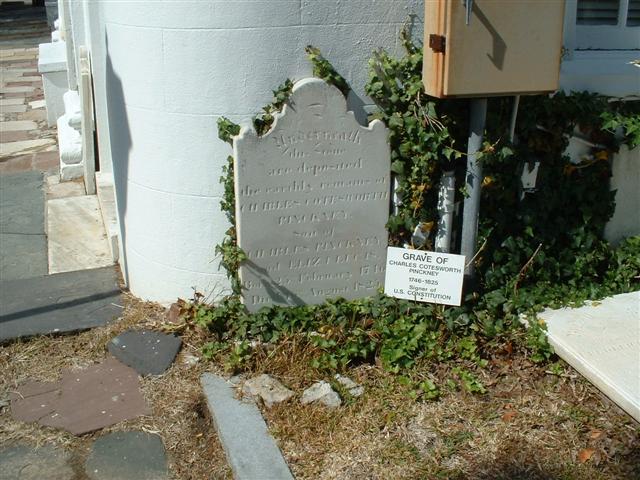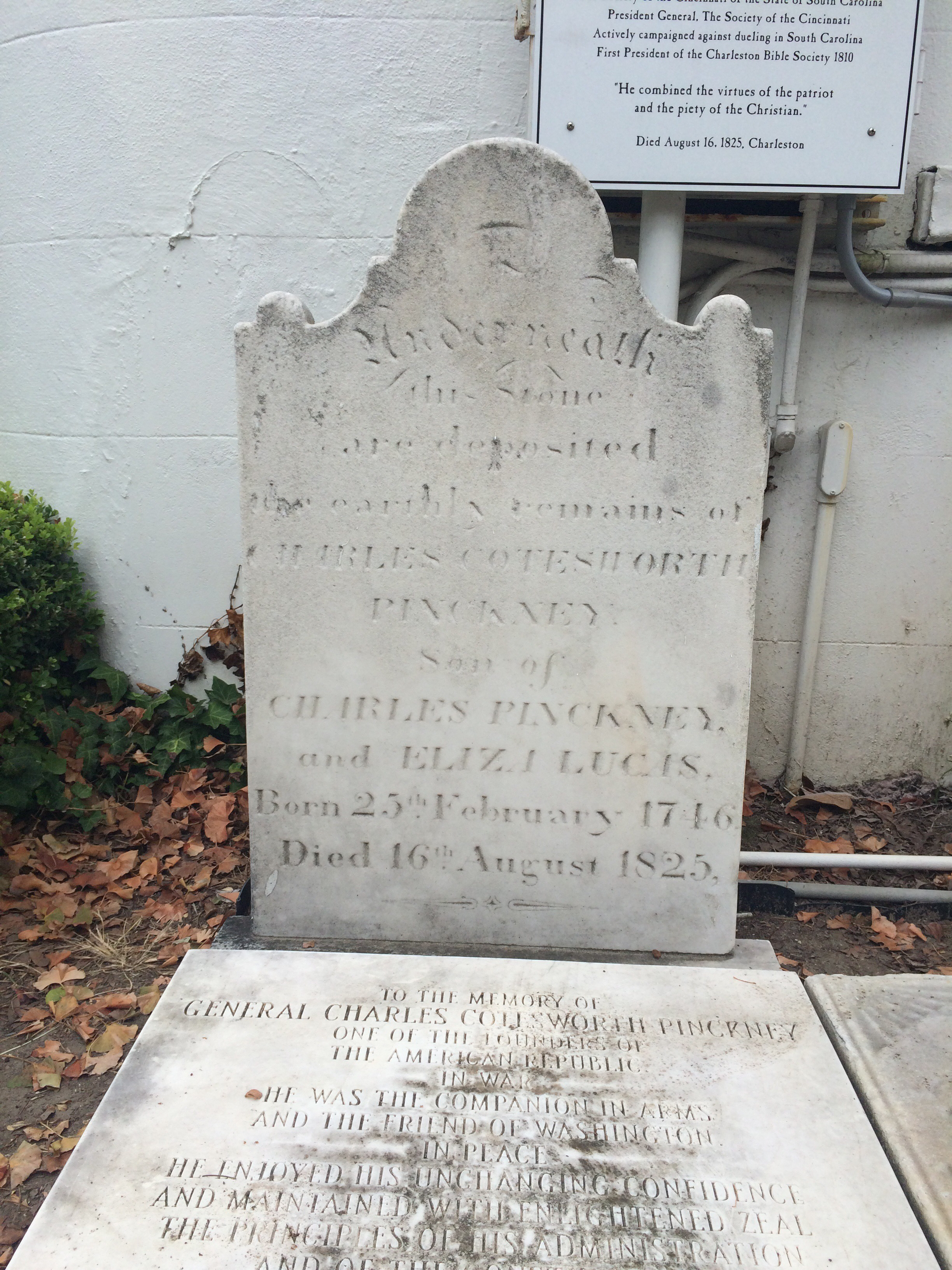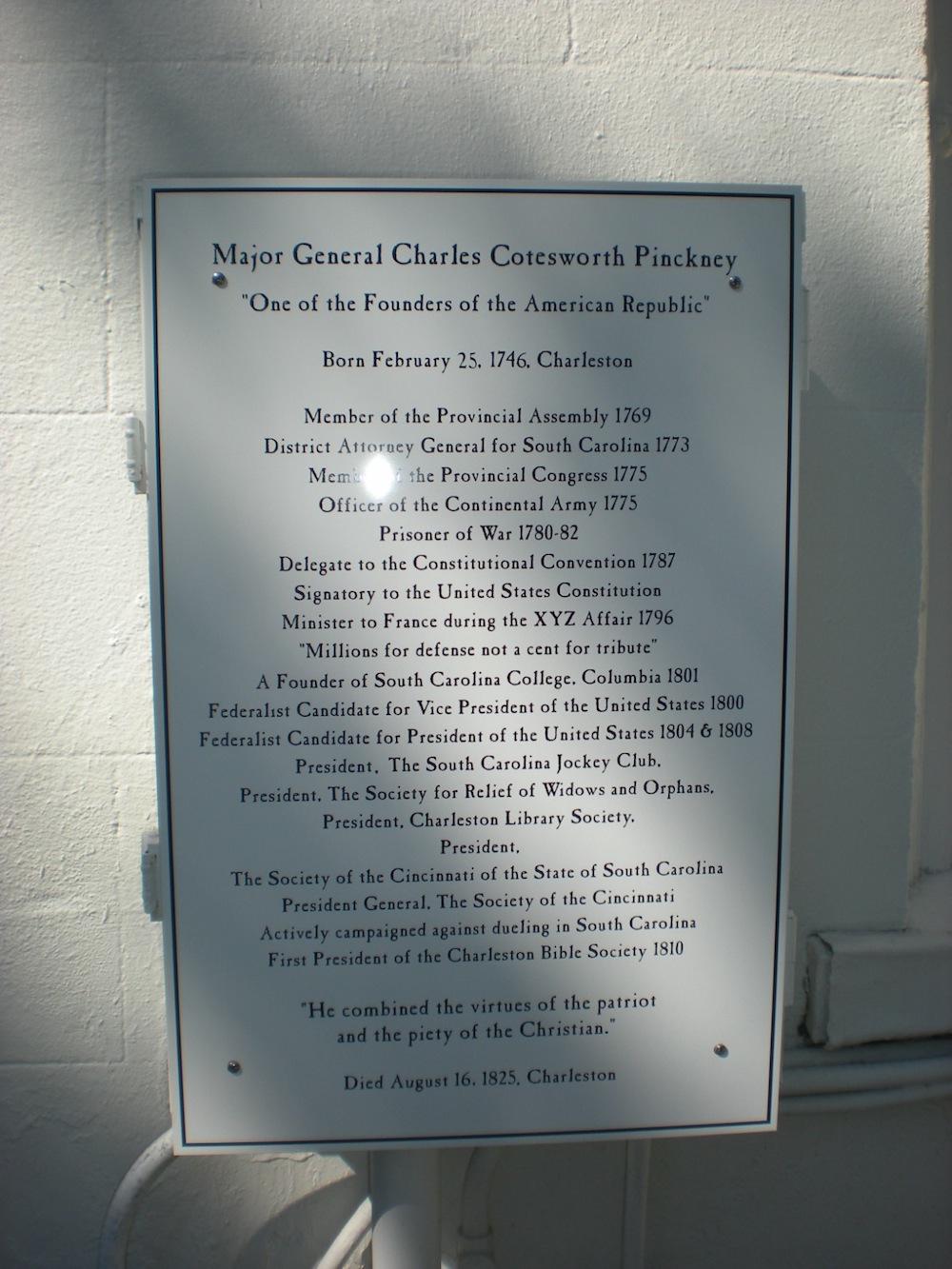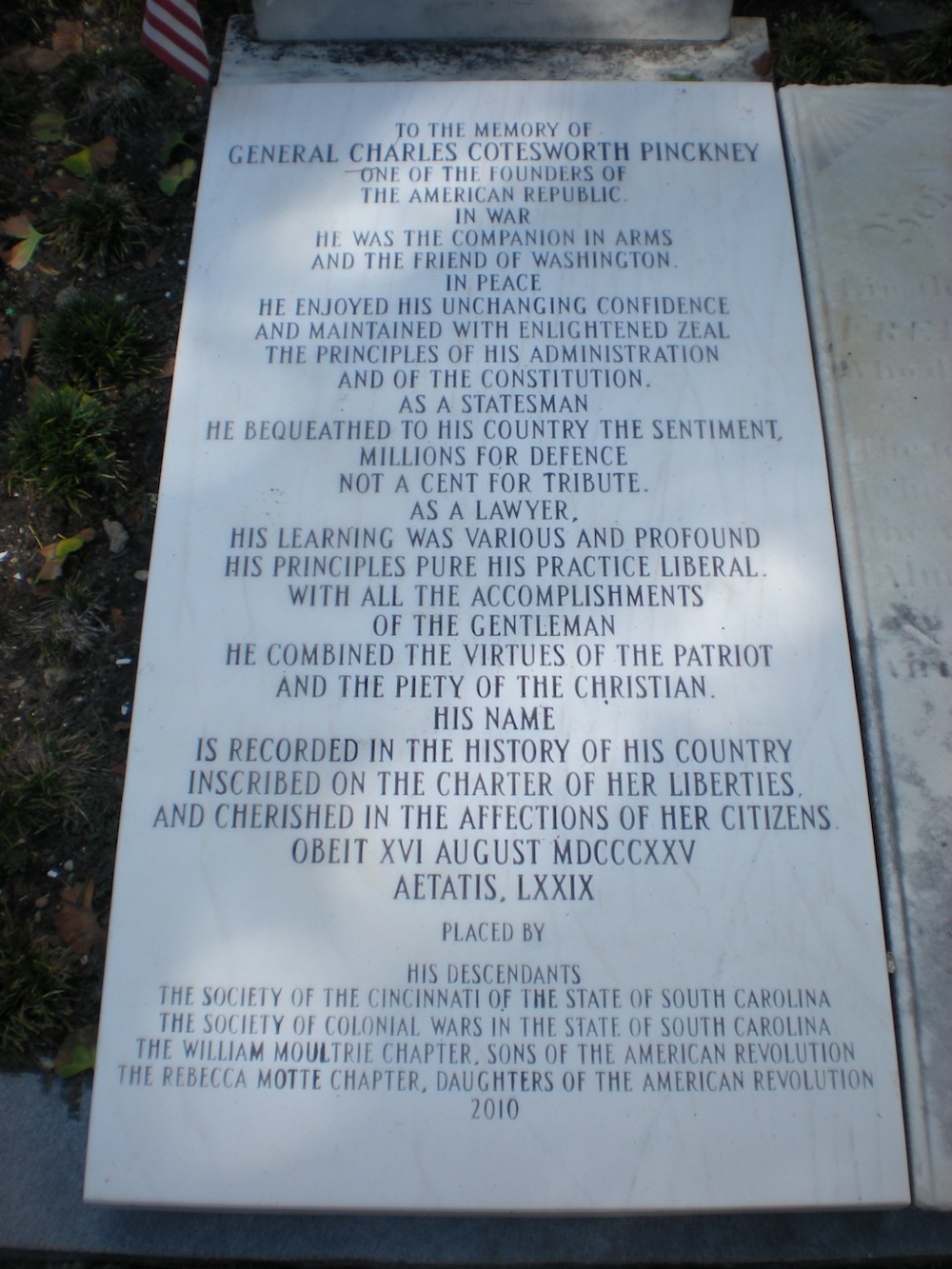Bio by: Bigwoo
Inscription
1746-1825 CHARLES COTESWORTH PINCKNEY —To the memory of General Charles Cotesworth Pinckney, one of the founders, of the American Republic. In war, he was the companion in arms and the friend of Washington. In peace, he enjoyed his unchanging confidence and maintained, with enlightened zeal, the principles of his administration and of the Constitution. As a statesman, he bequeathed to his country the sentiment, " millions for defense, not a cent for tribute." As a lawyer, his learning was various and profound, his principles pure, his practice liberal. With all the accomplishments of the gentleman, he combined the virtues of the patriot and the piety of the Christian. His name is recorded in the history of his country, inscribed on the charter of her liberties, and cherished in the affections of her citizens. Obeit, XVI August, MDCCCXXV. AEtatis, LXXIX.
Family Members
Advertisement
See more Pinckney memorials in:
Explore more
Sponsored by Ancestry
Advertisement
